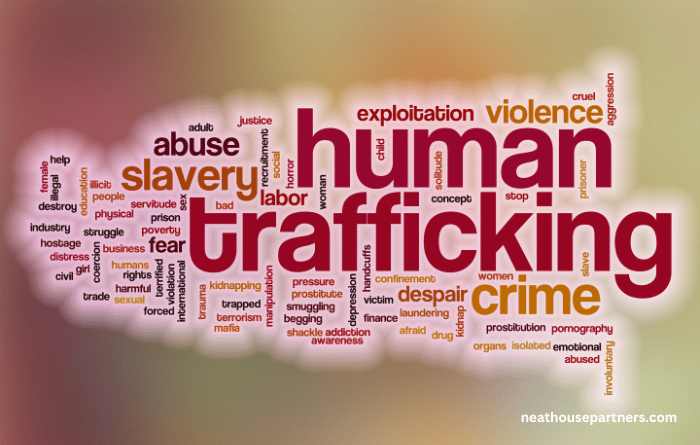The Modern Slavery Act 2015 requires UK businesses with a turnover over £36 million to disclose and publish an annual modern slavery statement that explains what they are doing to tackle slavery and human trafficking in their supply chains.
Disclosure should be via a slavery and human trafficking statement on their website. It can also be submitted to the current modern slavery statement to the government modern slavery statement registry. If your business falls under this turnover threshold, then participation in displaying your response to tackling modern slavery is voluntary.
What Is The Modern Slavery Act 2015?
The Modern Slavery Act 2015, passed by the UK government, attempts to fight human trafficking and slavery. The act necessitates that all companies that make £36 million or more publicly release a statement explaining what they are doing to reduce the possibilities of slavery and human trafficking in their supply chains. Before being published on the company’s website, these statements must be confirmed by the board of directors.
The act not only gives law enforcement agencies new abilities to investigate and prosecute potential traffickers but additionally creates new offences for companies that do not take the proper precautions to prevent slavery and trafficking in their supply chains.
What Must The Statement Include?
Even if your company has done nothing to try and combat the risks of modern slavery in its supply chains, you must still publish a statement outlining this if you meet the criteria set for participating organisations in the Act.
Whilst it’s not a requirement that companies guarantee that slavery isn’t at play in their supply chain, they must be able to describe the steps they have taken to minimise the risk of this happening.
The statement should cover:
- Organisation structure and supply chains
- Policies about slavery and human trafficking
- The processes of due diligence
- Risk assessment and management
- Your key performance indicators should show you how effective your steps are.
- Slavery and trafficking training
Who Needs To Act?
Under section 54 of the Modern Slavery Act 2015, if the following applies to your business, you are legally required to publish an annual modern slavery statement on your website and encouraged to make statements from previous years available online.
You should therefore be aware of the Modern Slavery Act, and your obligations under it.
- If you are a corporation or partnership (an ‘organisation’),
- If you conduct business in the United Kingdom
- If you supply goods or services
- If the company makes an annual turnover of £36 million or more.
What Do Business Owners Need To Know About The Modern Slavery Act?
- Businesses must publish a slavery and human trafficking statement on their website, outlining the steps they have taken to address the issue.
- The statement must include information on the steps the company has taken to ensure that there is no slavery or human trafficking in its business or supply chain.
- Business owners who fail to comply with the Act can be fined up to £20 million or face imprisonment.
- Businesses with under £36 million turnover do not have to do anything about modern slavery according to the Modern Slavery Act 2015 and therefore are not required to publish a modern slavery statement.
- The government recommends that all businesses should have policies and procedures in place to identify, prevent, and mitigate the risks of modern slavery in their operations and supply chains regardless of turnover.
- Businesses of all sizes have signed up for the Voluntary Business Pact to End Modern Slavery, which commits them to take action on modern slavery. Regardless of turnover, joining the pact is a voluntary but important step that businesses can take to help tackle this problem.
- The following resources are available on the government’s website to help you draft a modern slavery statement:
What Is A Modern Slavery?
While slavery may seem like a thing of the past, it is still a very real problem in the world today, with the most recent estimate from the International Labor Organization, indicating over 40 million people are enslaved around the world. While the specifics of what constitutes slavery may vary, it generally refers to the forced labour of one group of people by another.
In recent years, the term “modern slavery” has been used to describe the exploitation of workers in a variety of industries, from agriculture to manufacturing to sex work. Modern slaves are often lured by false promises of good pay and working conditions, only to find themselves in situations of extreme exploitation. They may be forced to work long hours for little or no pay, and they may be subject to physical and sexual abuse.
Legislation such as The Modern Slavery Act helps by raising awareness of the issue, supporting organisations that work to free slaves, and pressing for stricter laws and enforcement against those who profit from slavery.
Summary
The Modern Slavery Act is a piece of legislation in the United Kingdom that requires large turnover businesses to publish a slavery and human trafficking statement on their website. The statement must include information on the steps the company has taken to ensure that there is no slavery or human trafficking in its business or supply chain.
Businesses that fail to comply with the Act can be fined up to £20 million or face imprisonment. Businesses of all sizes have signed up for the Voluntary Business Pact to End Modern Slavery, which commits them to take action on modern slavery.
Next Steps
Some view the Modern Slavery Act as a positive step that will help to raise awareness of the issue and encourage businesses to do more to tackle it, whereas others find it an additional business burden. Regardless of where you sit, you must act inline with your legal responsibilities as a business with a turnover of £36 million or more. If you would like support in understanding and actioning your responsibilities towards preventing modern slavery, please talk to your Neathouse contact.






